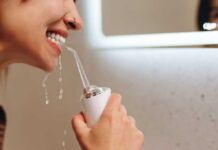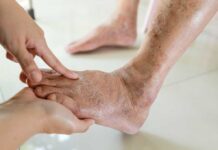
Coffee naps offer the best of both worlds: a caffeine boost timed perfectly with the natural rejuvenation of a short rest, according to research showing it outperforms either coffee or napping alone.
At a Glance
- A coffee nap involves drinking caffeine quickly then napping for 15-20 minutes, timing your wake-up with caffeine’s peak effects
- The science works because napping reduces adenosine (which causes drowsiness) while caffeine blocks remaining adenosine receptors
- Studies show coffee naps improve alertness, cognitive performance, and reduce errors compared to just coffee or naps alone
- The ideal time for a coffee nap is mid-afternoon (1-3 PM) when energy naturally dips
How Coffee Naps Work
Coffee naps operate on a simple but effective principle: combining caffeine’s stimulating effects with the restorative benefits of short rest periods. When you consume caffeine, it takes approximately 20 minutes to fully enter your bloodstream and reach your brain. This timeframe creates the perfect window for a short power nap, allowing you to wake just as the caffeine begins working at maximum capacity.
The effectiveness of coffee naps relates directly to how caffeine interacts with adenosine in your brain. Throughout the day, adenosine accumulates in your brain and binds to specific receptors, making you feel increasingly tired. When you sleep, even briefly, adenosine levels naturally decrease. By timing your caffeine intake just before napping, you create a powerful combination: your nap clears adenosine while caffeine arrives to block remaining adenosine receptors.
Scientific Evidence Supporting Coffee Naps
Research consistently demonstrates that coffee naps outperform either coffee or napping alone. In driving simulator tests, participants who took coffee naps made significantly fewer errors compared to those who only drank coffee or only napped. A Japanese study found that people who took a coffee nap performed better on memory tests and reported less subjective tiredness than those using other methods to combat fatigue.
However, not all research shows equal benefits across all cognitive domains. An interesting study published in Behavioural Brain Research found that while caffeine increased alertness, it didn’t enhance memory performance compared to napping. In fact, naps improved word recall after both short and long retention intervals better than caffeine, and caffeine actually impaired motor learning compared to both napping and placebo conditions.
Proper Coffee Nap Technique
Timing is crucial for an effective coffee nap. First, consume your caffeine quickly—espresso or iced coffee works well if drinking hot coffee quickly is difficult. Aim for 150-200mg of caffeine, approximately the amount in a standard cup of coffee. Then immediately find a quiet, comfortable place to rest. Set an alarm for 15-20 minutes to avoid entering deep sleep, which could leave you feeling groggy instead of refreshed.
The ideal time for a coffee nap is between 1 PM and 3 PM, when energy levels naturally dip due to your circadian rhythm. Experts recommend avoiding coffee naps less than 6 hours before bedtime to prevent sleep disturbances. Creating an environment conducive to quick relaxation—using eye masks, comfortable seating, and perhaps white noise—can help you fall asleep rapidly, maximizing the short window before caffeine takes effect.
Who Should Consider Coffee Naps
Coffee naps can be particularly beneficial for night shift workers, long-distance drivers, and those experiencing afternoon energy slumps. They provide a natural alternative to multiple cups of coffee or energy drinks throughout the day. People preparing for presentations, studying for exams, or needing to maintain focus during long workdays may find coffee naps especially helpful for sustaining mental clarity.
Not everyone should try coffee naps, however. People sensitive to caffeine, those with anxiety disorders, or individuals with gastroesophageal reflux disease might find the side effects outweigh the benefits. Pregnant individuals should be especially cautious, limiting caffeine to 200mg daily. Anyone with sleep disorders should consult healthcare providers before incorporating coffee naps into their routine.
Whether you’re looking to boost productivity during a busy workday or maintain alertness during a long drive, coffee naps offer a science-backed method to enhance your energy and focus. By understanding the timing and technique, you can harness the synergistic benefits of caffeine and rest to feel more alert, focused, and energized without relying solely on multiple cups of coffee throughout the day.


















